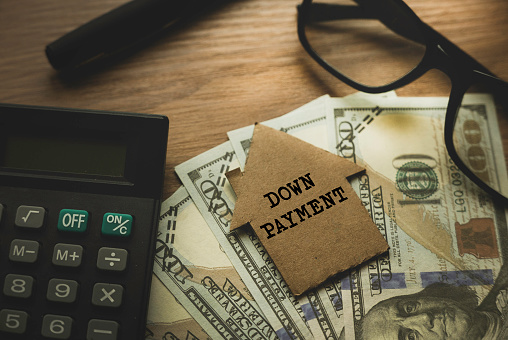Pros and cons of certificates of deposit (CDs)
Oct 02, 2023 By Triston Martin
Investment options can certainly be daunting. Choosing the right one is crucial to getting a good return on your investment, no matter what amount of time or money you have saved. Investing in Certificates of Deposit (CDs) is a relatively safe and popular option.
CDs are FDIC-insured investments that guarantee a consistent rate with low risk over a specified period, making them attractive for investors seeking reliable options for their savings. In this blog post, we'll look at the pros and cons of investing in CDs, helping you decide whether it's an effective method for reaching your financial goals.
Certificate of Deposit (CD)

A certificate of deposit (CD) is a savings product offered by banks, credit unions, and other financial institutions. It’s an agreement between you and the bank where you agree to keep your money in the account for a specific period in exchange for a guaranteed rate of return. CDs are FDIC-insured up to $250,000 per institution for individuals, so your money is safe if the bank goes out of business.
How do certificates of deposit work

CDs are typically available with terms ranging from a few months to several years. When you purchase a CD, you will enter into an agreement that states the amount of money you're investing, the length of the deposit term, and your expected rate of return. Once your CD matures, you can withdraw your money or roll it over into another CD for an additional term.
Different Types of CDs
There are a few different types of CDs that you may run into. They include:
Traditional CDs
These are the most common type of CD and offer fixed rates for a specified period. The longer the term, the higher rate you’ll receive.
Jumbo CDs
Also known as high-yield or super jumbo deposits, these certificates typically require a larger initial deposit. They can come with higher interest rates than traditional CDs because they involve more risk.
No Penalty CDs
As the name suggests, no-penalty CDs allow investors to withdraw their money without paying any fees before maturity – though they come with lower interest rates than traditional certificates.
Pros Of Investing In Certificates Of Deposit (CDs)
Pros
- Low Risk: Investing in CDs is one of the safest investment options. Since they are FDIC-insured, your initial deposit and any interest earned over the term of the CD are protected up to $250,000 per institution.
- Predictability: Unlike other investments that can be volatile, with a CD, you know exactly what rate of return you will receive over its term.
- Higher Interest Rates: Compared to savings or money market accounts, CDs offer higher yields (interest) paid on your deposited funds for locking them away for a set period — usually between 6 months and five years.
- Flexible Terms: CDs are offered various terms, ranging from a few months to several years. This allows investors to choose the best term for their needs and goals.
- Liquidity: While CDs are generally not as liquid as other investments, they offer some liquidity in that you can withdraw your funds any time during the term (although doing so may result in an early withdrawal penalty).
- Tax Advantages: Interest earned on CDs is generally taxable, but certain tax advantages are associated with investing in them. For example, holding the CD for over five years may qualify for special federal income tax rates depending on your financial situation.
- Diversification: Investing in CDs is a great way to diversify your portfolio and spread risk. This will help you achieve better returns while protecting your investments during an economic downturn.
- Easy To Understand: CDs are relatively straightforward investments, making them easy to understand and manage for novice investors.
Cons
- Low Returns: CDs generally offer lower returns over time due to their low-risk nature than other investment options, such as stocks and bonds.
- Lack Of Flexibility: Unlike some other investments, with a CD, you are locked into earning the same rate of return for the entire deposit term — unless you choose to withdraw your funds early.
- Opportunity Cost: Investing in CDs means committing your money for a specific period and being unable to take advantage of other opportunities during that time frame.
- Early Withdrawal Penalties: CD accounts are penalized if you withdraw funds before the designation maturity date. The penalty amount depends on the account's terms, but it can be significant — sometimes as high as six months' interest or more.
- Fees: Depending on the bank or financial institution, some CDs may require an upfront or yearly fee to maintain them. Be sure to check with your chosen provider first before investing in any type of CD.
- Compounding Interest: With CDs, the interest earned is not compounded during the term of the CD — meaning that you will not earn any additional interest on the accrued interest earned until after the CD matures. This can limit your potential returns over time.
Strategies For Making the Most Out Of CDs
To make the most out of CDs, here are a few strategies that can help you maximize your return:
- Shop for the best rate: Financial institutions and banks offer different rates on their CDs, so be sure to shop around for the best terms.
- Balance risk & reward: If you have some extra cash to invest, consider diversifying your portfolio by investing in both short- and long-term CDs with various maturities. This will help protect your investments against market volatility while allowing you to benefit from higher yields when interest rates go up.
- Consider laddering: Laddering is a strategy where you divide your money into several smaller amounts and purchase CDs with different maturities. This allows you to take advantage of higher rates without sacrificing liquidity.
- Reinvest your interest: Reinvesting the interest earned on your CD can help maximize your return over time. This is particularly useful for long-term investments as the compounding effect will result in greater returns in the future.
- Use penalty-free withdrawals: Many financial institutions offer penalty-free withdrawals after a certain period — usually five years or more — so be sure to inquire if that’s available to you before committing your money.
- Look into adding features: Some banks and other financial institutions offer automatic renewals and laddered CD investments. Ensure you understand all the features available and how they might benefit your portfolio.
FAQS
Why can CDs be very risky?
The primary risk associated with CDs is that they offer limited returns and may need to catch up with inflation over time. If you withdraw your money before the maturity date, you will incur an early withdrawal penalty which can significantly reduce your return on investment.
Are CDs taxed?
Yes, all interest earned on a CD is subject to federal and state taxes. Be sure to consult a tax professional for more information about how your particular investment will be taxed.
Are CDs the best way to save money?
It depends on your financial situation and goals. CDs are a relatively safe option with low risk, and they can offer peace of mind knowing that your money is secure. However, other investment options may provide higher returns if you tolerate more risk.
Conclusion
Certificates of Deposit (CDs) come with many issues to consider at the outset. They may only be suitable for some and are best appreciated by those who can invest for a predetermined period and want a guaranteed return. While CDs can offer an advantage to those wanting security in their investments, misconceptions about how they work and the associated fees should prompt careful consideration before purchasing.

All About CDs
Instead of a bank or credit union, a brokerage may provide a Certificate of Deposit (CD) account. The initial investment required for these CDs could be greater than that for regular or specialised CDs. In some cases, such as when opening a new one, you may need to invest $10,000 or more. In comparison to bank CDs, returns on broker CDs may be substantially higher due to their liquidity on the secondary market.
Feb 23, 2024 Triston Martin

PenFed Pathfinder Reward Visa Signature Review 2022
Credit card users who travel frequently will benefit most from the PenFed Pathfinder Reward Visa Signature Card, which offers a hefty $100 yearly bonus and a $100 credit against domestic travel expenditures. Furthermore, cardholders may earn rewards points for making everyday purchases
Feb 12, 2024 Triston Martin

How to Apply for Forgiveness of Your Student Loans If You Have Done Public Service
If you've been making on-time payments and working in a public service field for ten years, you may be eligible for loan forgiveness under the Public Service Loan Forgiveness (PSLF) Program. Students who want to work for nonprofits or the government may qualify for financial aid via this program. To be eligible for PSLF, one must be familiar with the program's criteria and follow all necessary procedures. On Twitter on August 24, 2022, President Joe Biden stated that he would be waiving $10,000 in federal student loan debt for qualified applicants. Additionally, Biden extended the moratorium on government student loan payments, including interest, until December 31, 2022.
Feb 27, 2024 Susan Kelly

How to Become an Online Tutor
Learn how to become an online tutor and start making money from the comfort of your own home. We'll provide you with an overview of what it takes to get started in online tutoring, including setting up your business structure, finding clients, and much more!
Dec 06, 2023 Susan Kelly

A New Driver's License: How to Apply
If you've lost your Texas driver's licence or identity card and need to replace it, you can do so at any of the state's driver licence offices. It's possible that you can get a replacement via the internet as well. Learn more about how to get a new driver's licence, CDL licence, or identification card by checking out our dedicated page.
Dec 28, 2023 Triston Martin

What Exactly Is a Due From Account?
Accounts due are a subset of asset accounts in the general ledger and serve to keep track of funds that are legally owing to one company but are in the custody of another. Often referred to as "intercompany receivables," it is used in conjunction with a receivables account."
Jan 18, 2024 Triston Martin